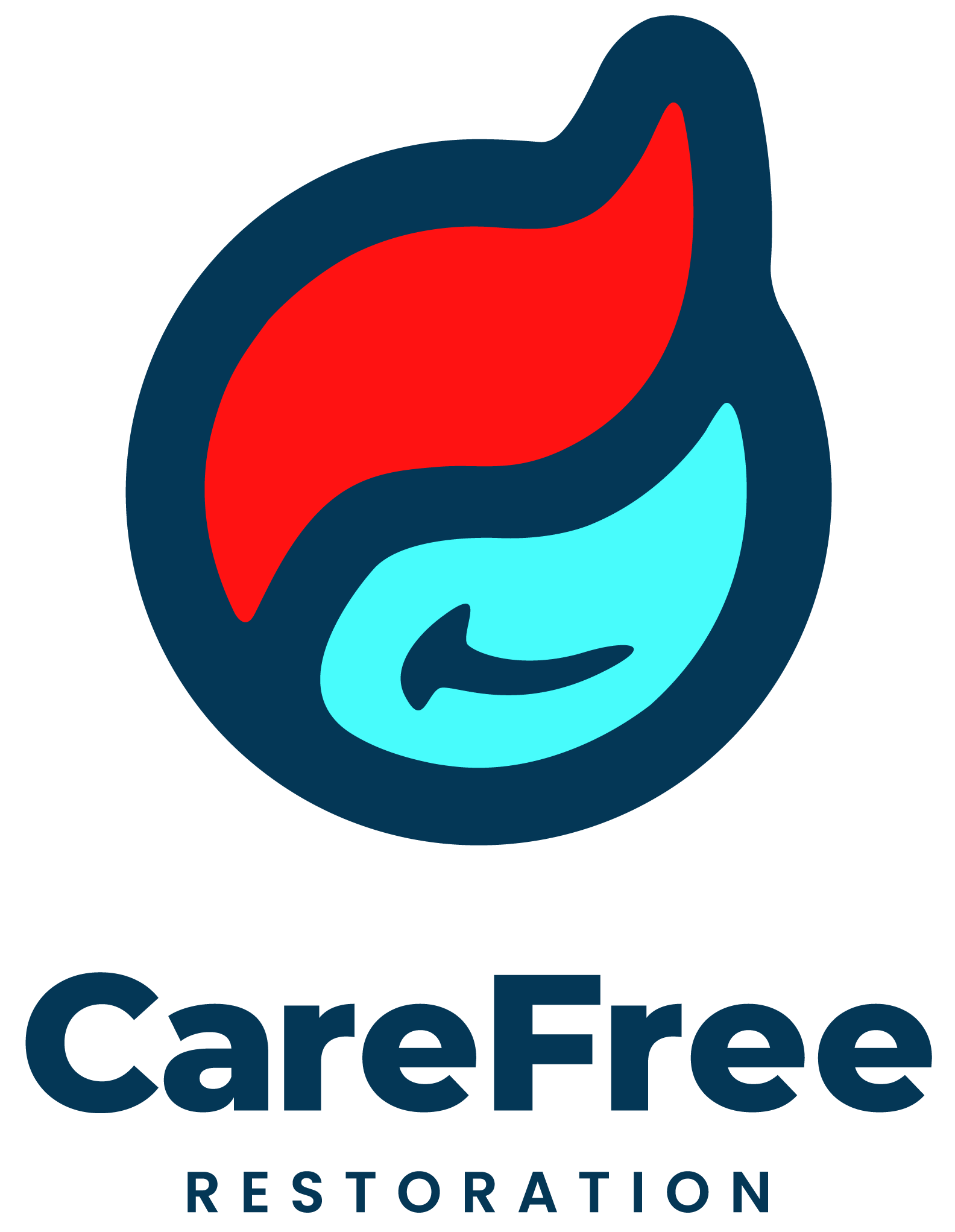Water Damage • Fire & Smoke Damages • Storm Damage • Personal Contents • Reconstruction •
Answers to Frequently Asked Restoration Questions
What kinds of damage does CareFree Restoration handle?
CONTACT USWe restore water damage (leaks, burst pipes, appliance failures, flooding), fire and smoke damage, mold growth, storm and wind damage, sewage backups, biohazard/trauma scenes, and we manage demolition, drying, contents cleaning/pack-outs, and full reconstruction—all under one roof for homes and businesses in Johnson City, Kingsport, Bristol, and surrounding East Tennessee.
Do you work with my homeowner’s (or business) insurance?
MORE ABOUT INSURANCEYes. We document the loss, communicate with your adjuster, provide estimates, and can bill the carrier directly where permitted. You always choose your restoration contractor. You are not required to use the restoration company your insurance company suggests.
What types of property do you restore? Just structures? Or personal belongings and contents too?
WHO WE SERVEBoth. We restore structures (framing, drywall, roofs, floors, mechanicals) and contents (furniture, clothing, electronics, art, documents). When needed, we perform a contents pack-out: inventory, carefully pack, transport, and clean/deodorize items at a secure facility, then return them after repairs.
What is a “pack-out,” and when is it necessary?
LEARN MOREA pack-out safely removes and catalogs salvageable belongings from affected areas so structural drying and repairs can proceed. Contents are cleaned (e.g., smoke/soot removal, deodorization, soft-goods laundering, electronics treatment) and stored until your property is ready. It’s common after fires, major water losses, and mold remediation.
How fast can you respond in an emergency?
(423) 610-0500For water, fire, storm, and bio incidents, call (423) 610-0500—rapid response matters. We prioritize stopping the source, securing the property, extracting water, and beginning structural drying to reduce secondary damage and mold risk.
What does the water-damage restoration process include?
LEARN MORETypical steps: emergency response and source control → damage assessment and moisture mapping → water extraction → removal of unsalvageable materials → professional drying (air movers/dehumidifiers) → antimicrobial cleaning → verification with meters → repairs/reconstruction.
Is professional mold remediation really necessary?
LEARN MOREYes. Visible mold indicates a moisture problem; professional containment, air filtration, removal of impacted materials, cleaning, and drying are required to address the root cause and protect indoor air quality. Coverage varies—sudden/accidental water events may be covered, while long-term leaks/deferred maintenance often are not.
Are your methods aligned with industry standards?
ABOUT USWe follow the IICRC (ANSI/IICRC) Standards that represent the industry’s accepted “standard of care” for inspection, cleaning, and restoration.
How do insurance deductibles and coverage usually work?
MORE ON INSURANCECoverage depends on policy terms and cause of loss (e.g., burst pipe vs. long-term seepage). Many agents advise opening a claim when the loss significantly exceeds your deductible; when in doubt, call your agent for guidance—we’ll provide photos, moisture readings, and an estimate to help inform that decision.
Do you help me decide whether to file a claim?
MORE ABOUT INSURANCEWe can outline scope and estimated costs and share documentation so you can consult your agent. Ultimately, the decision to file is yours. (Pro tip: photograph affected areas early and avoid discarding items until documented.)
What should I do right after I discover water damage?
CHECK THE BLOGStay safe (watch for electrical hazards), stop the source if possible, move valuables out of standing water, and call us. Avoid DIY demolition; improper removal spreads contamination and complicates insurance documentation.
How long does drying take?
OUR SERVICESMost projects dry in 3–5 days with professional equipment, depending on materials, temperature, and saturation levels. Some assemblies (hardwood, plaster, subfloors) can take longer; we monitor daily with meters and adjust until dry goals are reached.
Can smoke odor and soot really be removed?
LEARN MOREYes. We use source removal (HEPA vacuuming, alkaline/enzymatic cleaning), thermal/ozone/ hydroxyl deodorization, and HVAC cleaning as needed. Porous items are assessed for salvageability and either restored or documented for replacement.
Do you handle storm and wind damage?
LEARN MOREAbsolutely—tarping/board-ups, water extraction from roof or window intrusions, debris removal, structural drying, and repairs/reconstruction. We also coordinate with insurers on scope.
What about sewage/biohazard or trauma cleanup?
LEARN MOREWe provide certified biohazard cleanup, including sewage backups (Category 3 water), trauma scenes, and sanitization—using proper PPE, containment, and disposal protocols—followed by repair of affected building materials.
Do you handle commercial losses and large-loss projects?
LEARN MOREYes—retail, offices, medical, multifamily, warehouses, and industrial facilities. We scale labor/equipment, coordinate with facility managers, and stage work to minimize downtime and business interruption. Documenting damages is an important part of the process as well. Check out the blog below with best practices for documenting damages and filing claims with your insurance provider.
Can you reconstruct my property after mitigation?
LEARN MOREYes. CareFree provides one-team continuity from mitigation through permits, reconstruction, and final walk-through, streamlining schedules and communication.
Will you help with my contents inventory for insurance?
LEARN MOREYes. During pack-outs we create itemized inventories with photos and condition notes to support cleaning/restoration decisions or replacement requests with your adjuster.
How do you determine what can be saved vs. replaced?
LEARN MOREWe evaluate safety, contamination category, porosity, damage severity, and cost-effectiveness, referencing industry standards and insurer guidelines. Salvageable items are cleaned, dried, and deodorized; non-restorable items are documented for claim purposes.
Do I have to wait for insurance approval before you start?
MORE ABOUT INSURANCEFor emergency services (water extraction, drying, board-ups), no mitigation should begin immediately to prevent further loss. We’ll coordinate with your carrier and keep them updated on scope and pricing.
How do you keep my home/business safe during work?
LEARN MOREWe set up containment, negative air where needed, protect unaffected areas, and maintain jobsite cleanliness. Daily moisture logs and progress updates keep you and your adjuster informed.
What areas do you serve?
SERVICE AREAWe serve Johnson City, Kingsport, Bristol, Elizabethton, Greeneville, Piney Flats, Blountville, and the surrounding Tri-Cities Area. We are available 24/7 for emergency services, too, so call any time at (423) 610-0500. Check out our Service Area page to view the communities and towns we serve in East Tennessee.

